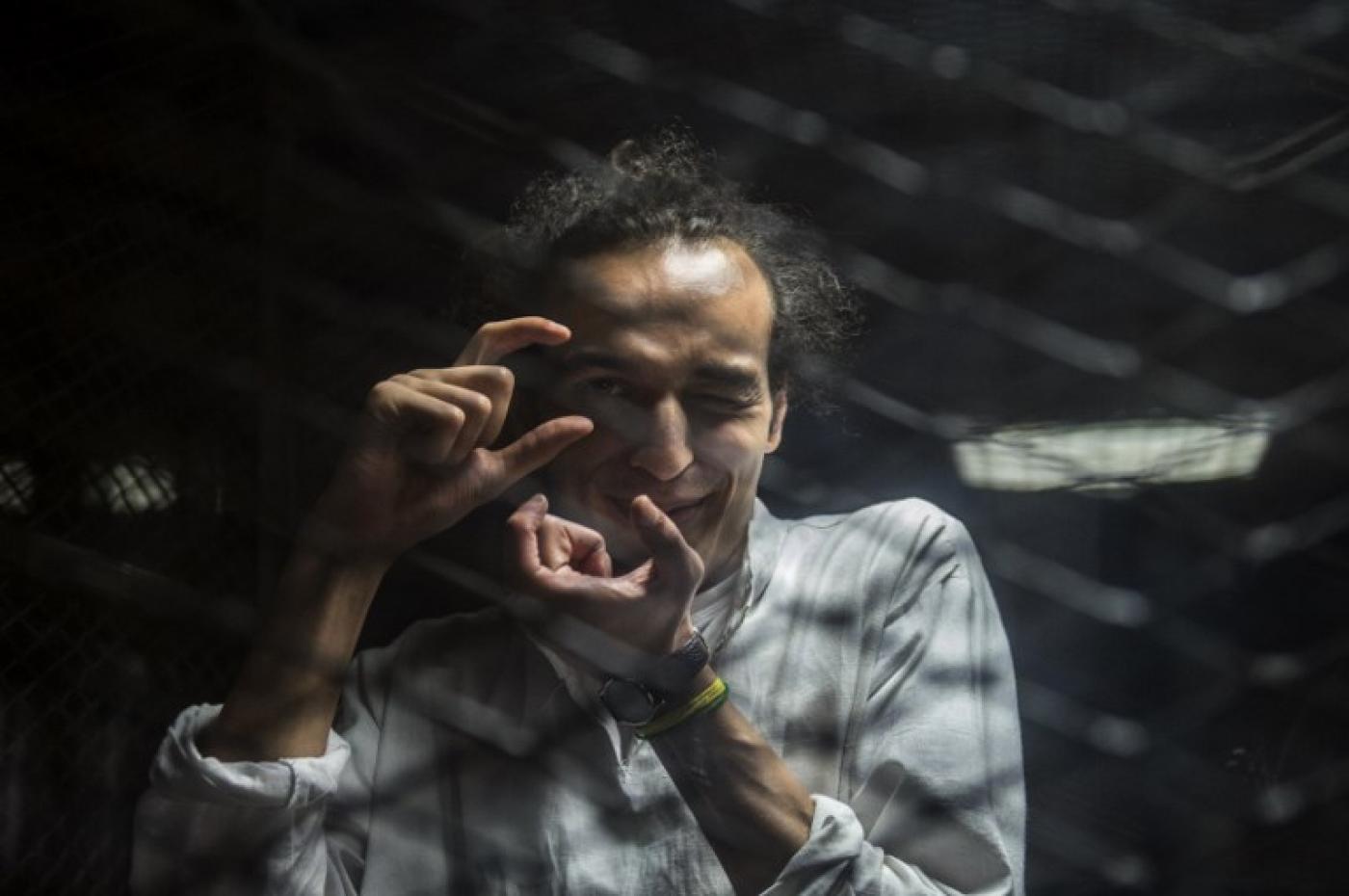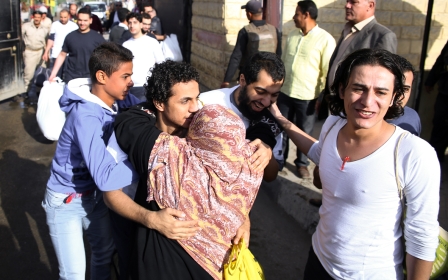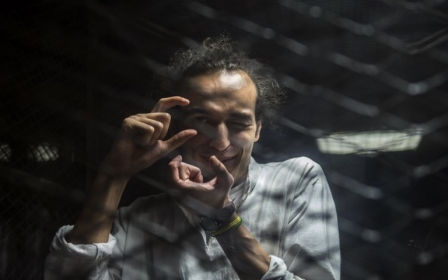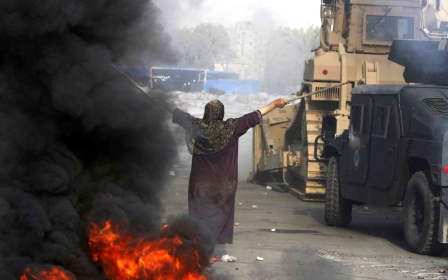Award-winning Egyptian journalist Shawkan on verge of being released, says lawyer

Photojournalist Mahmoud Abu Zeid, also known as Shawkan, left prison on Saturday and is expected to be fully released soon, a local human rights lawyer said.
According to lawyer Karim Abdelrady, Shawkan was transferred to the Khalifa police station in Cairo on Sunday in preparation for his release.
Shawkan, 31, was arrested on 14 August 2013 while taking pictures of the Egyptian military's violent dispersal of a sit-in at Rabaa al-Adawiya square, where supporters of deposed President Mohamed Morsi were protesting the coup against him that year.
More than 800 protesters were killed by the joint police and military operation, according to Human Rights Watch.
Last year, Shawkan received the 2018 Press Freedom Prize awarded by the United Nations cultural agency UNESCO, which calls his detention a human rights abuse. Egypt's government, in turn, criticised UNESCO for its decision to honour someone accused of "terrorist and criminal acts".
International rights groups have repeatedly denounced Shawkan's arrest and called for his release, including Amnesty International, which said he was imprisoned merely for doing his job as a photojournalist at a public demonstration.
UN human rights experts condemned a decision by the Egyptian prosecutor to seek the death sentence against Shawkan.
“Journalists and media workers covering protests should not be criminalised for their professional duties and they certainly should not be facing the death penalty for doing so,” said the UN experts.
Two other foreign journalists were arrested with Shawkan - Louis Jammes and Mike Giglio - but were released hours later. However, Shawkan was later held for more than two years in pre-trial detention – a practice heavily criticised by rights groups.
In August 2015, he was referred to trial alongside over 700 other defendants on charges including participating in unauthorised protests, murder and membership of the banned Muslim Brotherhood group.
What is the Rabaa massacre?
+ Show - HideOn 14 August 2013, rights groups estimate that at least 817 demonstrators - and most likely more than 1,000 - were killed as security forces cleared Rabaa square of protesters supporting ousted President Mohamed Morsi, the first elected civilian president of Egypt and a high-ranking member of the Muslim Brotherhood.
The bloodshed that occurred that day was described by Human Rights Watch (HRW) as "one of the world’s largest killings of demonstrators in a single day in modern history," as a result of "the indiscriminate and deliberate use of lethal force" against largely peaceful protesters. The HRW report concluded that the Rabaa massacre was equal to or worse than China’s Tiananmen Square massacre in 1989.
In an open letter he wrote from prison in April 2015, Shawkan said he was beaten and tortured during his arrest.
According to his family, Shawkan has been suffering from a lack of sleep, exhaustion and extreme psychological pressure.
He was also diagnosed with Hepatitis C prior to his arrest, and according to the Committee to Protect Journalists, his health has deteriorated while in prison.
In December 2016, his lawyer demanded his release on health grounds and requested a forensic medical examination. But the forensic report, presented during a 20 May 2017 court hearing, dismissed any health conditions and denied his release.
Another 214 prisoners in the same case are also expected to be released after serving their prison sentences, according to local media.
The defendants, including Shawkan, will be subject to police surveillance for five years after their release and will be barred from managing their financial assets and properties during this period. Those working as civil servants will be dismissed from their jobs.
Shawkan and his co-defendants have served six additional months in detention beyond their five-year sentence as prosecutors claimed they failed to pay “compensation” for the damages alleged in the charges against them.
Middle East Eye propose une couverture et une analyse indépendantes et incomparables du Moyen-Orient, de l’Afrique du Nord et d’autres régions du monde. Pour en savoir plus sur la reprise de ce contenu et les frais qui s’appliquent, veuillez remplir ce formulaire [en anglais]. Pour en savoir plus sur MEE, cliquez ici [en anglais].





